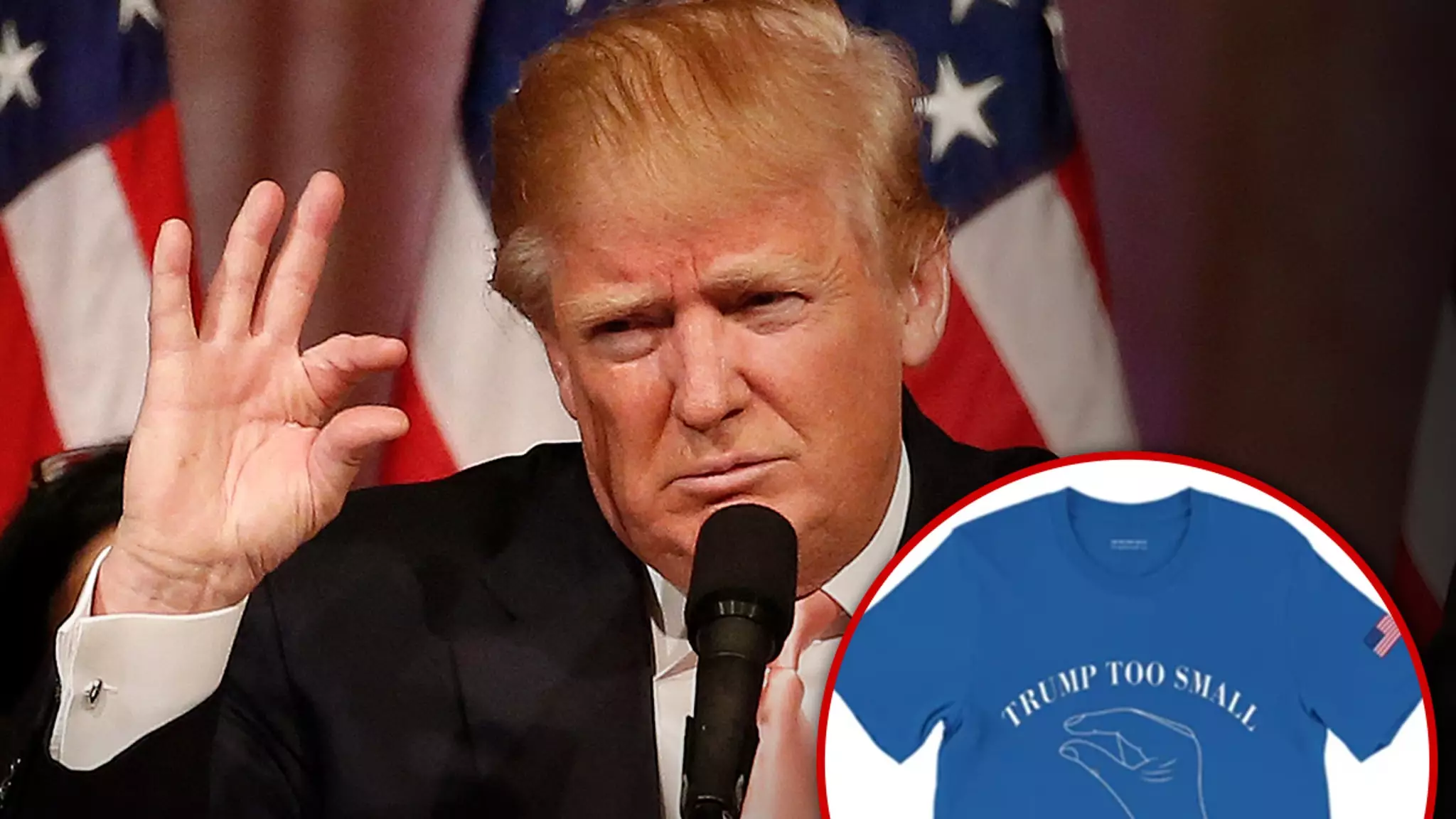In a recent legal dispute, the Supreme Court handed down a unanimous decision rejecting Steve Elster’s attempt to trademark the phrase “Trump Too Small.” Elster, a lawyer from California, had been selling t-shirts with the phrase printed on them for $25 each. However, his application for a trademark was denied by the U.S. Patent and Trademark Office, leading him to appeal the case all the way to the highest court in the country.
Elster argued that his First Amendment rights had been violated by the rejection of his trademark application. He contended that he should be able to trademark the phrase, despite it including the name of a living person, in this case, Donald Trump. However, the Supreme Court ultimately ruled against him, with Justice Clarence Thomas stating that there is a history of trademarks being rejected when they include the names of living individuals without their consent.
The phrase “Trump Too Small” is a reference to a remark made by Marco Rubio during the 2016 presidential campaign. Trump had labeled Rubio as “little Marco,” prompting Rubio to reply by questioning the size of Trump’s hands. This led to a public exchange between the two candidates, with Trump defending the size of his hands and implicitly his manhood. Elster’s decision to use this phrase on t-shirts clearly aimed to capitalize on this memorable moment from the campaign.
Despite the setback in his legal battle, Elster is still able to sell his “Trump Too Small” shirts online. While he may not have the legal right to claim a trademark on the phrase, he can continue to profit from its usage. This outcome allows him to continue to capitalize on the phrase’s connection to a well-known moment in recent political history.
The legal battle over the “Trump Too Small” merchandise highlights the complexities of trademark law and the limitations imposed on using living individuals’ names for commercial purposes. While Elster may not have achieved his goal of securing a trademark, he can still sell his shirts and benefit from the phrase’s popularity.

Leave a Reply